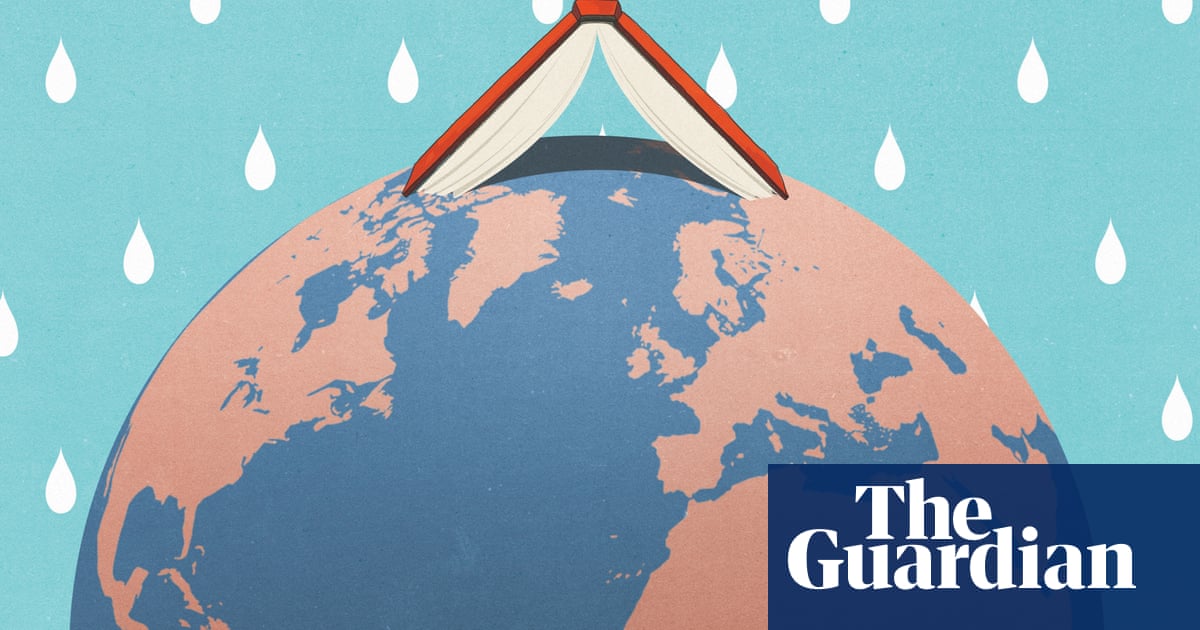
Lanier’s provocatively titled book may in itself appear divisive, but the tools for unity are abundant within this brief and lucid volume. Chief among them is Lanier’s reminder that strife and division –– conflict, in other words –– are encouraged, incited, stoked and rewarded by the online platforms that many of us use to communicate. Lanier is a longtime tech insider (he coined the phrase “virtual reality” in the 1980s) who still works for Microsoft, but he pulls no punches when it comes to indicting his industry. Insisting that we call “engagement” by its true name, “behaviour modification”, Lanier argues that we are being nudged into discord by the seemingly neutral conduits of our online communities – all to the profit of data-gathering systems in which we, the users, are actually the products. There is a silver lining to this frightening vision: we are not as far apart as we may think. Walking away is possible, and awareness itself is a useful tool. Lanier’s book provides that.
Raymond Antrobus: The Book of Delights by Ross Gay
This is the book I have gifted most over the past few years. It is a gratitude journal: the poet, gardener and teacher Gay sets down his vignettes/mini essays during his 43rd year. He writes openly, honestly and is not afraid of sentimentality. In fact he embraces it, dances with it, but with such astute self- and societal awareness that it in no way feels like fluff. This book is a reminder that gratitude is a practice and can offer an antidote to the emotional and philosophical damage caused by our turbocharged information culture.
Tessa Hadley: Little Dorrit by Charles Dickens
It’s music that really brings us together, makes us forget we’re one and feel we’re many. Reading books is more solitary; and so many of the books I like are written by odd people who don’t fit in, for odd people who don’t fit in. The Victorians were better at writing novels for everybody, encompassing whole worlds: Dickens especially. There’s Little Dorrit, with its wondrous teeming creation of characters and places, its darkness and its comedy, its rage at injustice, its psychological subtlety and sentimentality helplessly entangled. A book for sharing; as readers shared it when it first came out in monthly instalments in the 1850s, reading the latest part aloud to family and friends. No wonder it translates so well to television. I’m a fan of the 2008 BBC version scripted by Andrew Davies, with Claire Foy as Little Dorrit and Matthew Macfadyen as Arthur Clennam. What communal pleasure and togetherness, watching it with my family over several evenings, one recent Christmas past.
Jennifer Egan: Ten Arguments for Deleting Your Social Media Accounts Right Now by Jaron Lanier
Lanier’s provocatively titled book may in itself appear divisive, but the tools for unity are abundant within this brief and lucid volume. Chief among them is Lanier’s reminder that strife and division –– conflict, in other words –– are encouraged, incited, stoked and rewarded by the online platforms that many of us use to communicate. Lanier is a longtime tech insider (he coined the phrase “virtual reality” in the 1980s) who still works for Microsoft, but he pulls no punches when it comes to indicting his industry. Insisting that we call “engagement” by its true name, “behaviour modification”, Lanier argues that we are being nudged into discord by the seemingly neutral conduits of our online communities – all to the profit of data-gathering systems in which we, the users, are actually the products. There is a silver lining to this frightening vision: we are not as far apart as we may think. Walking away is possible, and awareness itself is a useful tool. Lanier’s book provides that.
Raymond Antrobus: The Book of Delights by Ross Gay
This is the book I have gifted most over the past few years. It is a gratitude journal: the poet, gardener and teacher Gay sets down his vignettes/mini essays during his 43rd year. He writes openly, honestly and is not afraid of sentimentality. In fact he embraces it, dances with it, but with such astute self- and societal awareness that it in no way feels like fluff. This book is a reminder that gratitude is a practice and can offer an antidote to the emotional and philosophical damage caused by our turbocharged information culture.
Tessa Hadley: Little Dorrit by Charles Dickens
It’s music that really brings us together, makes us forget we’re one and feel we’re many. Reading books is more solitary; and so many of the books I like are written by odd people who don’t fit in, for odd people who don’t fit in. The Victorians were better at writing novels for everybody, encompassing whole worlds: Dickens especially. There’s Little Dorrit, with its wondrous teeming creation of characters and places, its darkness and its comedy, its rage at injustice, its psychological subtlety and sentimentality helplessly entangled. A book for sharing; as readers shared it when it first came out in monthly instalments in the 1850s, reading the latest part aloud to family and friends. No wonder it translates so well to television. I’m a fan of the 2008 BBC version scripted by Andrew Davies, with Claire Foy as Little Dorrit and Matthew Macfadyen as Arthur Clennam. What communal pleasure and togetherness, watching it with my family over several evenings, one recent Christmas past.
Howard Jacobson: Persuasion by Jane Austen
Over this most wonderful of novels hovers the spectre of loneliness. Anne Elliot’s overly considered rejection of Captain Wentworth, many years before the novel begins, looks certain to have doomed them both – or at the very least Anne – to a life of forlorn singleness. That a reconciliation is at last effected is little short of miraculous. I read it as Jane Austen’s ex machina gift to her protagonists and us. In granting Anne and Wentworth the “high wrought felicity” that comes with the renewed expressions of affection, she satisfies their barely expressible desires and the tremulous hopes of her readers. Division and estrangement are at an end, happiness hangs by a thread as happiness always will, and we close the novel in a high-wrought condition ourselves, scarcely daring to breathe.
Amia Srinivasan: Deaf Republic by Ilya Kaminsky
I read this book-length poem for the first time sitting still, transfixed, afraid to break its spell, and certain that here was something important and real. Deaf Republic is a work of astonishing power and lyricism. It is a narrative poem set in a fictional occupied town, evoking Kaminsky’s childhood home Odessa. It sings a story of war, death, love, conscience, resistance, language and silence. Somehow, Kaminsky makes the pain of it all bearable – indeed, more than that: it is ravishingly beautiful.
Monica Ali: The Five Invitations: Discovering What Death Can Teach Us About Living Fully by Frank Ostaseski
Ostaseki is a co-founder of the Zen Hospice Project in San Francisco and this book is a distillation of the lessons he has learned over the course of his career, working with people on the edge of death. There are heartbreaking stories here, but also a surprising amount of light and hope, and an unblinking focus on what truly matters in life. One of the key “invitations” is to “cultivate a don’t know mind”. In this age of hot takes and hotter opinions, this is a much-needed antidote and a recipe for connection and compassion. Ultimately, this is a book that asks us to understand death as an integral part of life, and in doing so be better able to live fuller, less fearful lives.
Oliver Bullough: The Master and Margarita by Mikhail Bulgakov
The Kremlin’s invasion of Ukraine has provoked revulsion all around the world and it is hard to see many grounds for hope that Russia will change its ways. However, there is and has always been a different Russia – one that is humane, sceptical and fiercely intelligent – and this darkly hilarious account of the devil’s visit to Stalinist Moscow, written by the Kyiv-born Bulgakov, is the best guide to it. While we condemn the criminals that launched this terrible war, it serves as a reminder to keep a light burning for Russians who loathe it as much as we do.
Rose Tremain: How to Live: A Life of Montaigne in One Question and Twenty Attempts at an Answer by Sarah Bakewell
In a world characterised by a clamouring “festival of the self” let’s all cease posting and pasting and posturing on the internet for a day and turn to Sarah Bakewell’s inspiring distillation of the life and meditations of the wisest blogger of them all, Michel de Montaigne, who died in 1592. In this beautiful, accessible book we’re tenderly reminded that although time unfolds in “an endless slow turmoil”, once we turn our attention to the dance of the individual human mind – its restless trickery, its fear of death, its ordinariness, its mercy and its cruelty – then we begin to understand how much we share and how paramount is our need for the understanding of the other.
Karen Joy Fowler: Underland: A Deep Time Journey by Robert Macfarlane
This book is about everything we humans share – that this is the planet we live on, this the universe, these our fellow travellers, and death our destination. That much of our past is underneath us and we find our remotest ancestors by descending. That humanity is brief and yet, here in the Anthropocene, dangerously consequential. This nonfiction book worked on me like poetry, taking me somewhere beyond (or below) words – stretching me outwards and inwards, downwards and upwards, and into the future as far as it’s possible for mere humans to imagine. Profoundly philosophical, but vividly imagistic. One image that has lingered is of an infant buried centuries ago in the cradle of a swan’s wing.
Javier Cercas: The Tartar Steppe by Dino Buzzati
I recommend the Italian writer’s best-known novel but I could also recommend his extraordinary stories too. Buzzati – who is often compared to Kafka – is above all a writer of fables, and The Tartar Steppe is a fable about waiting, which begins brilliantly and concludes with one of the best endings I know. Robert Louis Stevenson – another fabulist – famously wrote: “There is no duty we so much underrate as the duty of being happy.” Like Stevenson’s, Buzzati’s writing is one of the forms of happiness.
Lemn Sissay: The Easy Way to Stop Smoking by Allen Carr
This book saved my life and countless others by unhooking us from the most addictive substance on planet Earth: nicotine. I smoked for 43 years an average of 10 cigarettes a day, which works out at a grand total of 160,950 cigarettes; nicotine delivery mechanisms. But the time is most revealing. At an average of five minutes per cigarette I have spent 559 days of my life smoking. On these statistics alone you can make an educated guess that I spent at least a year of precious life disappearing. This book certainly does bring us together. You don’t have to buy it yourself. Buy it as a gift for someone. Someone you don’t want to disappear.
Lady Brenda Hale: East West Street by Philippe Sands
A book that can bring us together, in solidarity with the people of Ukraine, in understanding the rich and complex history of central Europe, and in support of the ideal of a rules-based international order. This is a fascinating tale of how the author came to discover his family history, much of it featuring the historic city of Lemberg, which is now Lviv in Ukraine, interleaved with the stories of two prominent international lawyers, influential in the Nuremberg war crimes trials, both of whom came from the same small place. And an excellent read!
Devi Sridhar: Bossypants by Tina Fey
Fey is a fountain of wisdom about living life with joy and meaning – and with a wry smile. In her book she details her rise to fame and success in the comedy world and how she stayed focused on what she wanted to achieve, regardless of those trying to get in the way or tell her that women can’t be funny. I particularly like her insight, “Whatever the problem, be part of the solution. Don’t just sit around raising questions and pointing out obstacles.” Whether it’s fixing a blocked toilet, or dealing with Covid-19, it’s a truly valuable life lesson.
Joanne Harris: A Psalm for the Wild-Built by Becky Chambers
This is ostensibly a sci-fi tale, in which a restless tea monk, trained to listen and to offer comfort to passers-by, and a “wild-built” robot (a descendant of the sentient machines who left their bondage to live in the wild) come together to explore nature, humanity’s responsibility for the world and what it really means to be alive. It’s a marvellous, compassionate, healing book, poetic and inclusive; the literary equivalent of the perfect cup of tea.
Geoff Dyer: The Trouble With Being Born by EM Cioran
The temptation is to choose Camus’s The Plague, with its stirring conclusion – “there is more in men to admire than despise” – but since we all wolfed that down in the first month of the pandemic I’ll err in the opposite direction and go for something wilfully non-communal and anti-rousing on the grounds that a diverse idea of togetherness requires an annex for those who insist on being included out. So let’s give a warm welcome to EM Cioran’s cheery volume of aphorisms, The Trouble With Being Born.
Marcus du Sautoy: The Thirteen Books of the Elements by Euclid
It might seem rather perverse to recommend a maths book – not the most obvious choice to bring people together, except perhaps in an act of mass loathing. But bear with me. One of the joys for me of being a mathematician is that mathematics is a language that transcends geographical, cultural and historical boundaries. I’ve travelled to distant parts of the globe where my hosts and I share no language. And yet we are still able to exchange mathematical stories because of their universal nature. Indeed, many science fiction writers speculate that mathematics is the only language that will transcend cosmic boundaries and allow us to communicate with alien life. After all, 17 is a prime wherever you are in the universe.
Emilie Pine: I Didn’t Do the Thing Today: On Letting Go of Productivity Guilt by Madeleine Dore
We’ve all had a difficult couple of years, and over this time I have needed reminding of the power of self-compassion. No one helped me more with this than Madeleine Dore (who is perhaps best known for her podcast, Routines & Ruts). Her new book, I Didn’t Do the Thing Today, eschews guilt and shame, suggesting that we might all be happier – and more together, in the many meanings of that term – if we hold our expectations of ourselves more lightly. There’s so much in this book that it’s hard to single out any one piece of wisdom, but my head nearly exploded (in a good way) when I read her chapter on the “myth of balance”. And I love that she opens with a manifesto on not doing: “I didn’t do the thing today. I didn’t rise before seven. I didn’t change … I didn’t achieve. I didn’t progress. And it didn’t matter.” Perhaps nothing unites us more than our insecurities?
Caryl Lewis: The Science of Hate by Matthew Williams
If we want to come together, we must take a cold hard look at what is keeping us apart. The Science of Hate does just that. It is a forensic exploration of the patterns of thinking that we inherit or absorb or cultivate, and how prejudice tips over into hate. Matthew Williams’s genuine curiosity and disarming writing style make for a truly engaging read. Bringing a scientific sensibility to such an emotive subject takes out the heat a little, and allows us to reflect on our conscious and unconscious biases in what feels like a safe space; after all, hate is an inside job.
Claire Fuller: Learning to Love You More by Harrell Fletcher and Miranda July
Back in 2009, when I’d recently met Tim, my future husband, we did many of the 70 assignments that July and Fletcher set out in their book and website, Learning to Love You More. From a one-person demo on a four-lane highway (Less Driving More Walking), to displaying an encouraging banner in public (Life Is an Adventure), we did things that were out of our comfort zone and it got us meeting and talking to strangers. Although the website no longer accepts submissions, the book lives on as a way for people around the world to create their own answers to these quirky assignments.
Kate Mosse: On This Day She: Putting Women Back into History, One Day at a Time by Jo Bell, Tania Hershman and Ailsa Holland
In these challenging and splintered times – the dismantling of many of the rights and gains we’d thought were secure, the eroding of decency in public life, the assault on principles of equality – what better book to bring people together than one that celebrates the extraordinary achievements of women of the past, as a reminder of what is possible in the present? On This Day She … began life as a social media campaign, started by Bell, Hershman and Holland, after Holland had been given a calendar of historical events and realised that women were barely mentioned. This is a joyous and celebratory tribute to all those who battled to be heard, who fought for their achievements to be recognised and honoured, who simply kept going.
Elizabeth Day: Any Human Heart by William Boyd
A novel of such encompassing humanity that I can’t imagine anyone reading it and not feeling more connected with what it is to be alive. Written as the biography of Logan Mountstuart, a writer whose life spanned most of the major events of the 20th century, this novel reminds us of what it is to love and live and try to leave one’s mark, while also providing a first-hand account of key historical moments. As such, it’s a book that brings us together in multiple ways: it explores the connective tissue of our desires, our hopes and fears, while also telling the story of how we got here.
Alan Titchmarsh: The Wind in the Willows by Kenneth Grahame
I think there can be no finer book to bring us together than an old favourite. The Wind in the Willows was published in 1908 and it still offers so much to the reader. The pastoral setting reminds us of our connection to the countryside, and in the main characters of the book we have personalities and traits we can attribute to those around us: the shy and retiring Mole who eventually finds hidden resources within himself; the boastful and vainglorious Toad; resourceful Ratty; gloomy stay-at-home Badger and those wicked weasels and stoats from the Wild Wood. I love it as much today as I did when I first read it as a child.
Fernanda Melchor: Linea Nigra: An Essay on Pregnancy and Earthquakes by Jazmina Barrera
I would like to recommend this book, written by Mexican author Jazmina Barrera and translated by Christina MacSweeney. It is a beautiful and lucid essay about the journey across motherhood seasons – pregnancy, childbirth and first months of parenting. Far from mythologising motherhood as an idealised state, Linea Nigra sheds light on the complex and contradictory nature of gestation: a state crossed by terrors, but also by hopes and love; a biological and spiritual mystery that concerns all human beings, as individuals and as a society. The book is published in English this month.
Nell Frizzell: Adrift by Miranda Ward
It is sometimes suggested, sometimes assumed, that there exists a great divide between women who have children and women who do not. The mothers and the unmothers. The child-free and the child-heavy. But that is not and never has been a binary; many millions of women exist somewhere in what Miranda Ward so brilliantly calls “almost motherhood”. Documenting the six years she spent in and out of a state of something like motherhood – coming off contraception, miscarriages, awkward work picnics, fertility treatment, an ecotopic pregnancy, a soiled car seat and more – this book shows from the inside that motherhood is never a single state. And so, in reading it, we can bring together everyone swimming through those murky, unfathomable waters.
Hanan Issa: The Master’s Tools Will Never Dismantle the Master’s House by Audre Lorde
If I could, I’d attach a copy of this essay to every email I ever send. This work, written by the self-described “Black, lesbian feminist”, is not an easy read. It could, frustratingly, be referring to an incident in 2022 and not 1984, when Lorde penned the essay in which she describes her experiences of an academic conference and the de facto segregation she witnessed there. Her powerful and unflinching call for feminists to acknowledge and examine the racism and homophobia that exists within the feminist movement is, and will always be, absolutely necessary reading for any individual interested in social reform. Lorde writes: “In a world of possibility for us all, our personal visions help lay the groundwork for political action. The failure of academic feminists to recognize difference as a crucial strength is a failure to reach beyond the first patriarchal lesson. In our world, divide and conquer must become define and empower.” An intolerance of difference is just as likely to cause hatred today as it did back in 1984. Lorde’s words simultaneously shame our inaction and invigorate the cause now more than ever.
Lianne Dillsworth: Ariadne by Jennifer Saint
New retellings of old myths invite us to question our shared assumptions and the things we thought we knew. In offering the princess’s fresh and persuasive perspective on the story of Theseus and the Minotaur, Jennifer Saint’s Ariadne gives us permission to make sense of our world in different ways. I am hopeful that it can bring us together by inspiring a sense of curiosity about those whose voices have been marginalised, or who are absent or elided from the record. And that if those voices are then reclaimed, we can move towards a more inclusive understanding of the history and traditions that bind us.
Simon Kuper: The Anatomy of a Moment by Javier Cercas
Cercas tells a story that brings a country together – modern Spain. It’s a nonfiction account of the failed coup of 1981, when a group of far-right civil guards stormed into parliament. When they fired their guns, all the politicians dropped to the floor except three: the communist leader Santiago Carrillo, prime minister Adolfo Suárez (a former franquista) and deputy prime minister General Gutiérrez Mellado. Cercas presents these three men – former enemies, all with antidemocratic pasts – as the saviours of Spanish democracy. I’m spending this year in Madrid and reading the book, I wondered which British event might unite the country around democracy.












